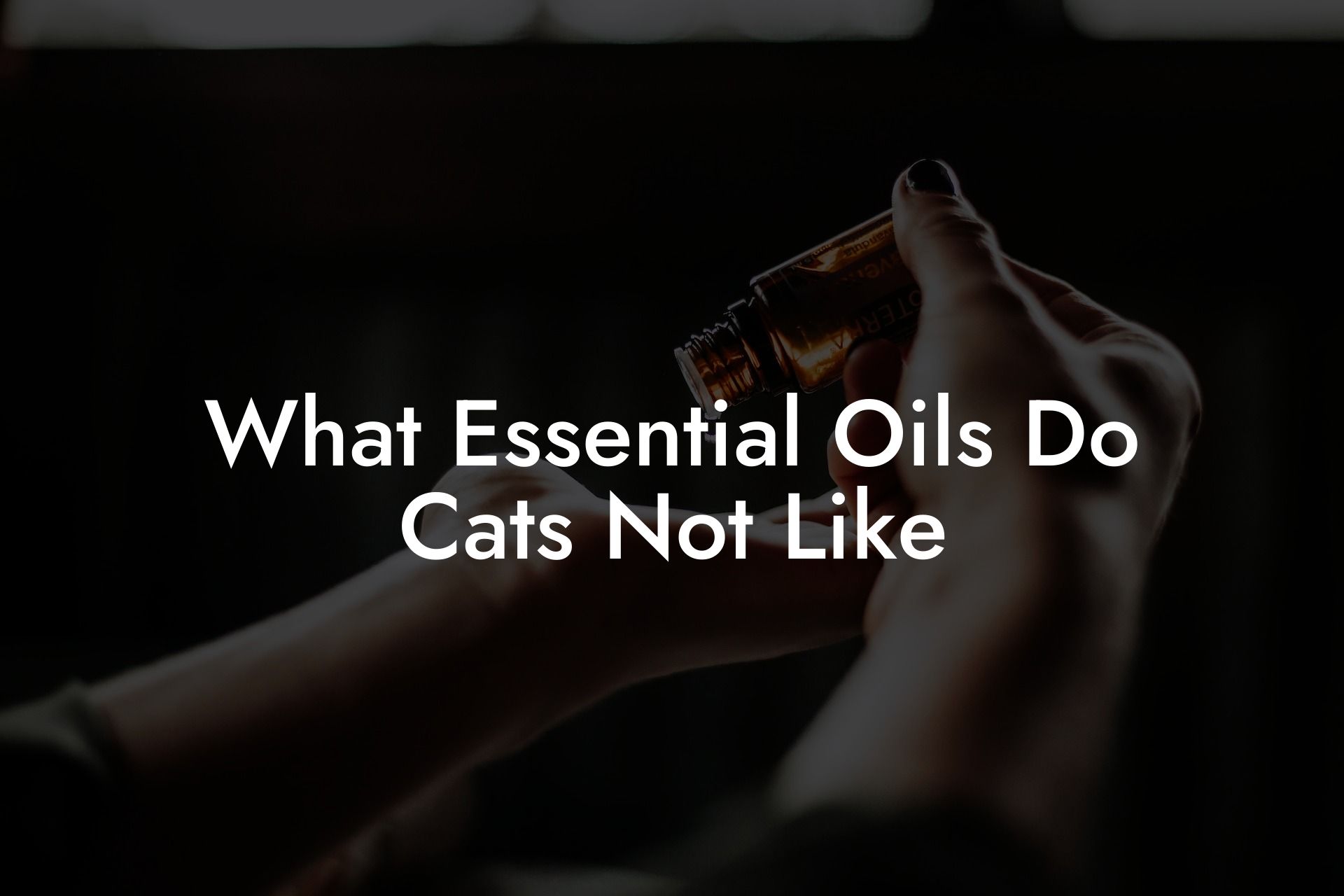As pet parents, we all love our furry feline friends, but sometimes their antics can be a challenge. Cats are notorious for their curiosity and tendency to get into things they shouldn’t. In order to deter them from damaging your home, or worse, ingesting potentially harmful substances, it’s essential to understand which scents can help keep them at bay. In this post, we will explore the essential oils that cats do not like and how you can use these natural deterrents to maintain a harmonious household.
Table of Contents
Why Essential Oils?
Essential oils are natural substances extracted from plants through processes such as steam distillation, cold pressing, or solvent extraction. These concentrated liquids contain the essence of the plants they come from, providing powerful scents and possible therapeutic benefits. Though some oils may have a pleasant aroma for humans, they can have the opposite effect on our feline companions.
It is crucial to remember that every cat is different and may react differently to individual scents. Ensure to observe your cat’s behavior closely to see if a certain oil is effective or causing stress and discomfort.
Essential Oils Cats Dislike:
The following essential oils are known to be unpleasant or unappetizing for cats:
1. Citrus oils: Most cats are not a fan of the pungent aroma of citrus oils, including lemon, orange, grapefruit, and lime. These oils contain compounds such as limonene and linalool, which can deter cats.
2. Eucalyptus: This potent oil has a strong, camphor-like scent that is off-putting to many cats.
3. Lavender: While lavender is often used to promote relaxation for humans, it can have the opposite effect on our feline friends.
4. Peppermint: The menthol aroma of peppermint oil can be overwhelming for cats and help deter them from areas where it is used.
5. Rosemary: The distinct herbal scent of rosemary oil is generally unappealing to cats.
Using Essential Oils Safely Around Cats
It is essential to remember that cats have a highly sensitive sense of smell and a unique metabolism, making them more sensitive to essential oils than other animals. To use essential oils safely around your cat, follow these guidelines:
– Never apply essential oils directly to your cat’s skin or coat.
– Provide your cat with a space where they can retreat from the scent of the oils.
– If using a diffuser, ensure the area is well-ventilated, and the concentration of essential oils in the air is low.
– Monitor for any signs of distress or discomfort in your cat when using essential oils.
What Essential Oils Do Cats Not Like Example:
Imagine you have a problem with your cat digging in your houseplants. To use essential oils as a deterrent, you could mix a few drops of lemon essential oil with water in a spray bottle and mist the surface of the soil in your plants once a week. Be sure to avoid spraying the plant itself, as some plants can be sensitive to the oils.
You could also diffuse low concentrations of citrus or eucalyptus essential oils in the general area where your plants are located. This can create an environment that is less enticing for your cat to explore. Remember to monitor your cat’s behavior to ensure it is not causing unnecessary distress.
In conclusion, by understanding the essential oils that your cat does not like, you can naturally and effectively deter them from unwanted behaviors or areas in your home. Always prioritize the safety and well-being of your feline friend, and use essential oils responsibly and sparingly. Please share this article with fellow cat lovers and explore the comprehensive guides on essential oils and aromacology on the Oshu Oils blog. Don’t forget to check out the Oshu Oils range of artisan essential earth oils for high-quality, expertly blended botanical ingredients to support your well-being journey.





















